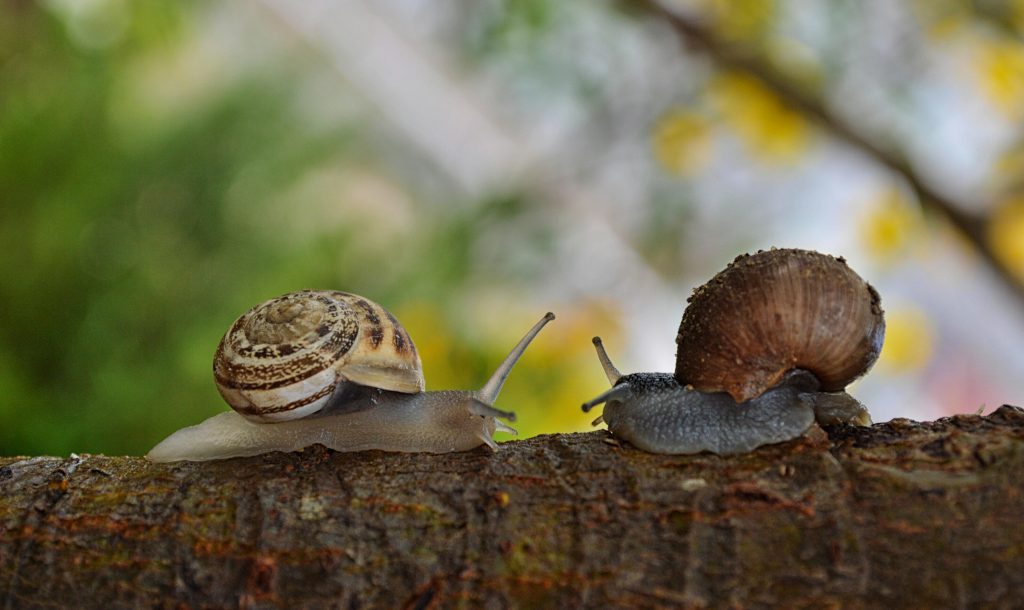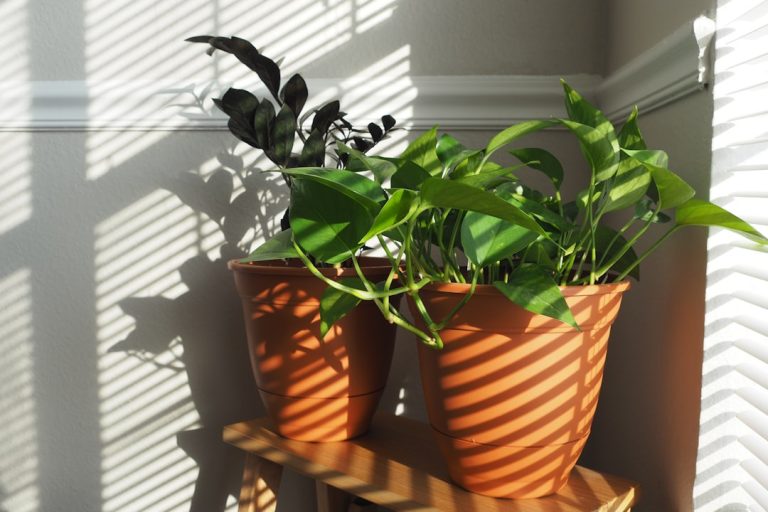Creating a wildlife-friendly garden is not only beneficial for the environment but also for the overall health and balance of your garden. By incorporating wildlife-friendly practices, you can attract beneficial insects, birds, and other wildlife that can help control pests naturally, without the need for harmful chemicals. This approach to gardening focuses on creating a sustainable and harmonious ecosystem where plants, animals, and insects coexist in a balanced and natural way. Wildlife-friendly gardens are designed to provide food, shelter, and water for a variety of wildlife, creating a thriving and diverse environment that supports the overall health of the garden.
In a wildlife-friendly garden, the emphasis is on creating a natural habitat that encourages biodiversity and supports the local ecosystem. By providing a variety of native plants, trees, and shrubs, you can attract a wide range of wildlife, from pollinators like bees and butterflies to predatory insects and birds that help control pest populations. By avoiding the use of chemical pesticides and herbicides, you can create a safe and healthy environment for wildlife to thrive. Additionally, incorporating features such as bird feeders, bat boxes, and insect hotels can further enhance the habitat and attract beneficial wildlife to your garden. Overall, a wildlife-friendly garden is not only beautiful and sustainable but also plays a crucial role in supporting the local ecosystem.
Summary
- Wildlife-friendly gardens provide a habitat for beneficial insects and animals
- Organic pest control methods are important for maintaining a healthy ecosystem
- Attracting beneficial wildlife such as birds and bees can help control pests naturally
- Natural predators like ladybirds and lacewings can help keep pest populations in check
- Companion planting can help deter pests and attract beneficial insects to your garden
The Importance of Organic Pest Control
Organic pest control is essential for maintaining a healthy and balanced garden ecosystem. Unlike chemical pesticides, organic pest control methods focus on using natural and sustainable practices to manage pest populations without harming beneficial insects, wildlife, or the environment. By avoiding the use of synthetic chemicals, organic pest control helps to preserve the natural balance of the garden and reduce the risk of harmful effects on human health and the environment. Additionally, organic pest control methods are often more targeted and selective, focusing on managing specific pest populations while minimizing impact on non-target species.
One of the key benefits of organic pest control is its ability to support beneficial wildlife in the garden. By avoiding chemical pesticides, you can create a safe and welcoming environment for pollinators, predatory insects, birds, and other wildlife that play a crucial role in controlling pest populations naturally. Organic pest control methods also promote long-term sustainability by reducing reliance on synthetic chemicals and promoting natural pest management strategies. Overall, organic pest control is an important aspect of wildlife-friendly gardening, as it helps to maintain a healthy and balanced ecosystem while minimising harm to the environment.
Attracting Beneficial Wildlife to Your Garden
Attracting beneficial wildlife to your garden is an essential aspect of wildlife-friendly gardening and organic pest control. By creating a welcoming habitat for beneficial insects, birds, and other wildlife, you can encourage natural pest control and support the overall health of your garden. There are several ways to attract beneficial wildlife to your garden, including planting native flowers and shrubs that provide food and shelter for pollinators and predatory insects. Additionally, providing water sources such as birdbaths or small ponds can help attract birds and other wildlife that contribute to pest management.
Another effective way to attract beneficial wildlife is by incorporating features such as bat boxes, bee hotels, and bird feeders into your garden. These features provide additional shelter and food sources for wildlife, encouraging them to take up residence in your garden and contribute to natural pest control. By creating a diverse and welcoming habitat for beneficial wildlife, you can reduce the need for chemical pesticides and promote a healthy and balanced ecosystem in your garden.
Natural Predators for Pest Control
| Natural Predators | Pest Control |
|---|---|
| Ladybirds | Prey on aphids, mites and other small insects |
| Praying Mantis | Feeds on a variety of insects including flies, crickets and moths |
| Lacewings | Consume aphids, mites, and other small insects |
| Hoverflies | Feed on aphids, thrips, and other small insects |
Natural predators play a crucial role in controlling pest populations in the garden. By attracting and supporting predatory insects, birds, and other wildlife, you can effectively manage pest populations without the need for chemical pesticides. Ladybirds, lacewings, hoverflies, and predatory beetles are all examples of beneficial insects that feed on aphids, mites, and other garden pests. By providing a habitat that supports these natural predators, you can encourage them to take up residence in your garden and help keep pest populations in check.
Birds are also important natural predators that can contribute to pest control in the garden. Many bird species feed on insects, caterpillars, slugs, and snails, helping to reduce pest populations naturally. By providing bird feeders, nesting boxes, and other features that attract birds to your garden, you can encourage them to forage for pests and contribute to natural pest management. Overall, supporting natural predators is an effective way to control pests in the garden while promoting a healthy and balanced ecosystem.
Companion Planting for Pest Management
Companion planting is a traditional gardening practice that involves planting different species of plants together to enhance growth, improve flavour, or repel pests. By strategically interplanting certain species, you can create a natural pest management system that helps to deter pests and promote overall plant health. For example, planting aromatic herbs such as basil, mint, or rosemary alongside vegetables can help repel pests like aphids, whiteflies, and cabbage moths. Similarly, planting marigolds or nasturtiums near crops can help deter nematodes and other soil-borne pests.
In addition to repelling pests, companion planting can also attract beneficial insects that contribute to natural pest control. For example, planting flowers such as sunflowers or cosmos can attract pollinators like bees and butterflies that help improve fruit set and overall plant health. Similarly, planting dill or fennel can attract predatory insects like ladybirds and lacewings that feed on aphids and other garden pests. By incorporating companion planting into your garden design, you can create a diverse and harmonious ecosystem that supports natural pest management while promoting plant health.
Homemade Organic Pest Control Remedies

Homemade organic pest control remedies are an effective and sustainable alternative to chemical pesticides. By using natural ingredients such as garlic, chilli peppers, neem oil, or soap solutions, you can create homemade remedies that help manage pest populations without harming beneficial insects or the environment. For example, a simple garlic and chilli pepper spray can be used to deter aphids, mites, and other soft-bodied insects from infesting plants. Similarly, a neem oil solution can be effective in controlling pests such as whiteflies, thrips, and caterpillars while promoting overall plant health.
Soap solutions are another popular homemade remedy for controlling pests in the garden. By mixing liquid soap with water and spraying it on plants, you can effectively manage pests such as aphids, spider mites, and mealybugs without resorting to chemical pesticides. Additionally, incorporating physical barriers such as row covers or netting can help protect plants from pests while promoting natural pest management. Overall, homemade organic pest control remedies offer a sustainable and environmentally friendly approach to managing pests in the garden.
Maintaining a Healthy Balance in Your Garden
Maintaining a healthy balance in your garden is essential for promoting biodiversity, supporting beneficial wildlife, and managing pest populations naturally. By incorporating wildlife-friendly practices such as organic pest control methods, companion planting, and attracting natural predators, you can create a sustainable ecosystem that promotes overall plant health while reducing the need for chemical pesticides. Additionally, providing food sources such as nectar-rich flowers for pollinators and bird feeders for predatory birds can help support beneficial wildlife in the garden.
Regular monitoring of pest populations and plant health is also important for maintaining a healthy balance in your garden. By identifying potential pest problems early on, you can take proactive measures such as handpicking pests or using targeted organic remedies to manage infestations before they become widespread. Additionally, promoting soil health through practices such as composting, mulching, and crop rotation can help improve plant resilience and reduce susceptibility to pests and diseases. Overall, maintaining a healthy balance in your garden involves creating a diverse and sustainable ecosystem that supports natural pest management while promoting overall plant health.
If you’re looking to create a wildlife-friendly garden, you may want to consider using organic pest control methods. This article from Eco Friendly Home and Garden provides some great tips for greening up your yard with environmentally friendly landscaping. By using natural pest control methods, you can create a healthy and sustainable garden that is welcoming to wildlife. Check out their guides for more information on creating a wildlife-friendly garden. And while you’re at it, why not try making some smooth homemade peanut butter to attract even more wildlife to your garden? (source)
FAQs
What are organic pest control methods?
Organic pest control methods are natural and environmentally friendly ways to manage and eliminate pests in a garden without the use of synthetic chemicals. These methods focus on promoting a healthy ecosystem and using natural predators, barriers, and repellents to control pest populations.
Why is organic pest control important for a wildlife-friendly garden?
Organic pest control is important for a wildlife-friendly garden because it helps maintain a balanced ecosystem and supports the presence of beneficial wildlife such as birds, insects, and other animals. Using organic methods avoids harming these beneficial creatures and helps create a healthy and sustainable environment for wildlife to thrive.
What are some examples of organic pest control methods?
Examples of organic pest control methods include companion planting, using natural predators such as ladybugs and birds, creating physical barriers like row covers and netting, using organic sprays and repellents made from natural ingredients, and practicing good garden hygiene to prevent pest infestations.
How can companion planting help with pest control?
Companion planting involves growing certain plants together to benefit each other in various ways, including pest control. For example, planting marigolds alongside vegetables can help repel pests like nematodes, while planting aromatic herbs like basil and mint can deter pests such as aphids and whiteflies.
What are some natural predators that can help control pests in a garden?
Natural predators such as ladybugs, lacewings, predatory wasps, birds, and beneficial insects like parasitic nematodes and predatory mites can help control pest populations by feeding on them or their eggs. Encouraging these predators to inhabit the garden can help keep pest numbers in check.
Are there any organic sprays or repellents that can be used for pest control?
Yes, there are organic sprays and repellents made from natural ingredients such as neem oil, garlic, hot pepper, and soap that can be used to control pests in a garden. These natural sprays and repellents are effective at deterring pests while being safe for wildlife and the environment.


